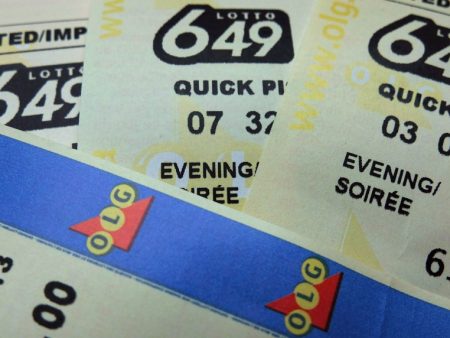Prime Minister Justin Trudeau announced his decision to resign as party leader.
Trudeau’s resignation, announced amid declining support for his Liberal Party and growing parliamentary deadlock, brings uncertainty to various policy initiatives, including critical gambling industry reforms.
With the Liberal Party preparing for a leadership contest and Parliament prorogued until March 2025, the gambling sector faces a period of limbo, compounded by legislative delays and unresolved regulatory debates.
Political crisis and transition
On Monday, January 9n Trudeau confirmed his intention to step down after a party leadership race, citing frustrations with an extended parliamentary session under minority rule.
His decision to prorogue Parliament halts all legislative activity, including two bills directly affecting gambling regulations. This disruption leaves stakeholders concerned about the immediate and long-term implications for the industry.
Key among the stalled legislation is Bill S-269, which aims to curb excessive gambling advertising, and Bill S-268, which focuses on recognizing Indigenous gambling rights.
Both bills had progressed in the Senate but will now need to restart in the next parliamentary session, pushing their timelines back significantly.
Stalled legislation
One of the most immediate impacts of Trudeau’s resignation is the suspension of legislative progress.
In Canada, when Parliament is prorogued, all bills that have not received Royal Assent are nullified. This procedural rule stems from the parliamentary system, where prorogation signifies the formal end of a legislative session.
Unlike adjournment, which pauses activities temporarily, prorogation clears the legislative slate, meaning all ongoing bills must restart from the beginning in a new session. This allows the government to reset its legislative agenda, often following a leadership change or in response to political deadlock.
In this case, Prime Minister Justin Trudeau requested prorogation to address prolonged parliamentary gridlock, effectively halting key legislative efforts, including gambling reforms.
While bills can be reintroduced in a subsequent session, the process delays their progression, particularly in a minority government where political priorities and consensus can be contentious.
Gambling bills will be affected by resignation
The prorogation of Parliament has effectively nullified legislative progress on several initiatives, requiring them to restart from scratch in the next parliamentary session.
Bill S-269, designed to establish a national standard for gambling advertising, had passed the Senate in late 2024 but had yet to be introduced in the House of Commons.
The bill proposed measures to cap the volume of gambling advertisements, restrict celebrity endorsements, and allocate funding for research on the effects of such marketing, particularly on youth.
Advocates stress that these reforms are overdue, yet the bill’s delay risks further normalizing gambling exposure among vulnerable populations.
Similarly, Bill S-268, which sought to formalize Indigenous communities’ rights to operate and regulate gambling within their territories, now faces an uncertain future.
Introduced in response to concerns from First Nations groups like the Mohawk Council of Kahnawà:ke, the bill aimed to amend the Criminal Code to grant Indigenous governments equal footing with provinces in managing gaming operations.
These setbacks represent missed opportunities to address long-standing inequalities and to build a more inclusive regulatory framework.
Indigenous communities are left waiting again
Indigenous-run gambling operations remain in a precarious position. The delay of Bill S-268 prolongs a lack of clarity in the federal regulatory framework, leaving First Nations communities without the legal recognition they have sought for decades.
The Mohawk Council of Kahnawà:ke, a leader in the fight for Indigenous gaming rights, expressed frustration over continued delays, emphasizing how exclusion from national regulations undermines their economic sovereignty.
With the bill’s progress stalled, Indigenous communities must now decide whether to intensify advocacy efforts or await parliamentary resumption.
Current debates about gambling
Canada’s gambling industry generates billions annually, contributing significantly to provincial and federal revenues. For example, Ontario’s iGaming market reported $2.4 billion in revenue during the 2023-2024 fiscal year, reflecting a 70% increase compared to the previous year.
Provinces like Alberta and British Columbia are also considering regulatory models to capitalize on the economic potential of online gambling.
However, this dependence on gambling income complicates efforts to introduce stricter regulations. Critics argue that prioritizing revenue risks sidelining public health concerns, particularly as gambling advertising continues to target younger demographics.
Fiona Nicoll, a gambling policy expert at the Alberta Gambling Research Institute, points out that governments face conflicting interests.
“While reducing gambling harm is a stated priority, the economic reliance on these revenues creates hesitations around enacting comprehensive reforms,” she explains.
Advertising regulations: Bill S-269
Since the legalization of single-game sports betting in 2021, the proliferation of gambling advertisements has sparked a public backlash.
Advocacy groups and public health experts warn that excessive marketing, particularly on social media and during live sports events, normalizes gambling and contributes to addiction risks.
Ontario has introduced limited measures, such as banning athletes from promoting gambling platforms, yet critics argue these steps fall short. A federal framework like the one proposed in Bill S-269 could address inconsistencies across provinces, but with the bill now stalled, no immediate action is expected.
The Centre for Addiction and Mental Health has labelled gambling advertisements a public health issue, advocating for tighter restrictions to curb harm. “The current volume of ads undermines efforts to promote responsible gambling,” a spokesperson noted. With polls indicating widespread public support for reform, Parliament’s inaction has drawn criticism from people all across the political spectrum.
Possible short-term effects
The ripple effects of Trudeau’s resignation over Canada’s gambling industry remain uncertain. Parliament’s suspension until March 2025 means any legislative progress on stalled bills will depend on the priorities of the incoming Liberal leader.
Additionally, the likelihood of a general election further complicates timelines, as campaign season typically freezes significant policy discussions.
Provinces are likely to continue driving gambling reforms independently, as seen in Ontario’s open-market iGaming model. Nonetheless, without federal oversight, disparities in consumer protections and regulatory standards across provinces are expected to persist.
For industry stakeholders and advocacy groups alike, the coming months will determine whether these setbacks mark a temporary pause or a longer-term derailment of reform efforts.
















